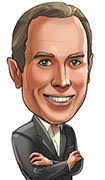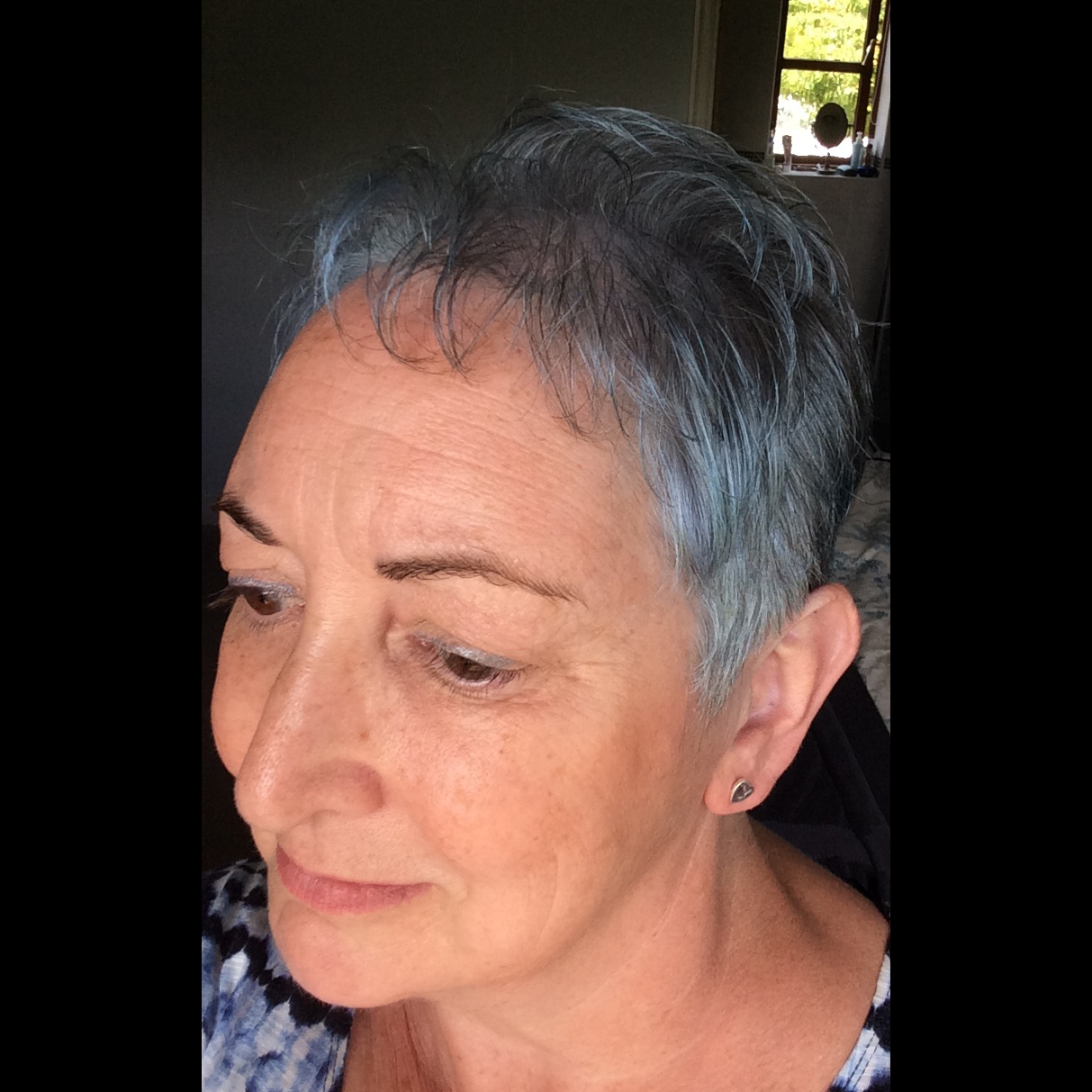With ASD, life feels like an emotional rollercoaster, and being an entrepreneur augments it. This emotional struggle can be a significant reason why autistics often don’t become entrepreneurs. The lack of sense of self worth can be crippling. It can be a struggle to see the world from the eyes of the buyer, and that they have needs that you can meet. It is too easy to believe that there isn't enough value for others to buy your services or part with money to acquire what you have.
Recently I had a business partially collapse, and all these feelings came back - “Why would anyone want what I have?", “Running a business is for ‘normal’ people", and “How can I develop relationships enough to convince people to spend money with me?”. I started to believe the narrative that, as an autistic, I cannot have the skillset to run a business. Fortunately, this is simply not true. Autistic people are not the only ones to have self-worth issues.
I struggle with high levels of anxiety, which can come out several ways, such as flares of anger, or debilitating lack of energy. It even took me to the depths of alcoholism and addiction. At the heart of all this is a neediness, a lack of self-love that I try to fill with external stimuli. Ironically, sometimes I deal with it through workaholism, where work becomes the distraction from the uncomfortable emotions of just being in my own skin.
Why is it an advantage in business?
It’s hard to see how emotional fragility can be an advantage. At times it has been the fuel to propel me to achievement. It discomfits me to admit it, but feelings of insecurity have driven me to compete and over-achieve throughout my life. A need to prove to others that I am good enough and worthy of respect, has been a constant drive. This may be an unhealthy motivation, but it is a powerful force that I have harnessed. I have seen this characteristic in other autistic entrepreneurs too, and believe that I need make peace with this drive, rather than deny it.
There is more to my motivation that just a neurosis-fuelled ambition. I have had several periods in my life (once after reading ‘The 4 Hour Workweek', and once when I’d just sold my company) where I was able to stop working for a significant period (months). I found the experience surprisingly negative with strong feelings of unfulfillment and malaise. A sense that I was spinning my wheels, wasting my time, and not putting my skills to use. This was, in fact, the absence of a sense of purpose.
I have a strong sense of purpose to what I do. That may not be unique to autistic entrepreneurs, but I believe that my condition amplifies this with strong emotional intensity. I really care about what I do. I believe that the primary reason for having a business is not money or status, but the opportunity to realise a purpose. To change the world in some small way of my choosing and have a positive impact.
I have struggled over the years to work with people, and many have chosen to leave me. I believe that those who have stayed have always appreciated that I, as a deeply emotional person, have always been driven by a deep sense of purpose.
Why is it a disadvantage in business?
I do see a lot of people with autism who don’t strike out alone because they don’t feel they are somehow ‘good enough’ to do so. In my case, ego, arrogance, and alcoholic self-medication got me to make the leap. Mostly, I was running from the discomfort of working for others, with their working culture and values, fed up with struggling to handle 'politics & diplomacy'.
It is an axiom of business that if you do not believe in yourself, you will not be able to get others to buy from you, or follow you. A minimum level of self confidence and belief is necessary in order to win over customers, employees, investors, or other stakeholders. People follow confidence.
When I started out as an entrepreneur, I had an extremely low understanding of my own emotions, my range included only excitement and anger. For me, it took getting sober, and working the 12 steps of AA, in order to start understanding my emotions, actually being able to tell the difference between feelings like guilt, jealousy, loneliness, and resentment. If I have no emotional control over myself, I struggle to lead others; it makes me emotionally fragile. I remember once a customer leaving us because I got disproportionally angry about a situation, as I has not recognised my own fearful reaction to feeling threatened.
There is a name for the condition of not being able to recognise or understand one's own emotions - 'Alexithymia' - and it's strongly correlated with ASD. I relate to the characteristics, and I know my inability to recognise emotions, and therefore deal with them, regularly causes me to end up unable to function, and having to take time away. And it's exhausting, the emotional highs and lows are like riding a car I cannot work out the controls of, dragging me in different directions.
The extreme of this is burn out. I have had many occasions where I just wanted it to end, either by torching the business, or even thoughts of suicide.
How can it be harnessed?
Remember the why. Tapping into my emotional side allows me to Lead, as opposed to just Manage, others. Leadership is about emotional engagement, such as inspiring people to a big long term goal, or being clear on the Culture and Values of the team and workplace. The opportunity is for me to access this, without tripping over my emotional challenges. I have had to approach this in 2 ways. The first is to learn certain tools, such as setting a long-term vision (Jim Collins' BHAG), and regularly communicating it. Similarly, tools such as 'Core Purpose' and 'Core Values' are there to tap into the emotional side of the business, capture and communicate people's motivations for working there. However, to do it functionally, and simply as a tool (which is my default) is not enough, I actually need to..
Share the emotional side. I tend to think of my emotional characteristics in terms of its weaknesses. I have tendencies towards anger, frustration, stress and anxiety, so why would I ever want to share that mess with people? In fact, people respond positively to vulnerability. I am very good at projecting a persona that I think a successful boss should be, but at the price of not showing my true self. Phrases like "It upsets me that..”, or “I'm struggling with..” tend to open the door to a more authentic self. Not all the time with all people, but it needs to be done more than I would naturally do. When I had a company blow up a couple of years ago, I went round asking people I'd worked with regularly over the years how I could have done better, and they all said the same thing - "be the same person at work as you are at home, don't feel the need to project a different persona.", which I honestly find very hard.
Community. Here we can be uniquely beneficial to one another. It’s is especially important for us to hear that we are not alone. I believe the journey of life is one of self awareness. I used to believe that all people were on the same journey as me, until I discovered I was autistic, and realised that I was on a very particular journey, with a unique set of people. We need to get together, no matter how unsocial and odd we may appear to one another, we can be uniquely valuable to one another through sharing our experiences with each other.
Get support. I go to AA meetings, attend meditation classes, and yes, see a therapist from time to time. I forget too easily that which ails me. I‘m like a dusty room that needs to be constantly swept. It can feel exhausting at times, and I get frustrated that my default state is not more conducive to balance and success, but I have to remember that I require constant maintenance.
Be inspired. Never forget that being autistic is not an impediment to being a successful entrepreneur. Take heart from Global successes like Peter Thiel (co-founder of PayPal). Peter has had a huge influence on the world, but, as my friend discovered, is a struggle to get through lunch with. Dare to believe - entrepreneurship is a real and viable option for our lives.
Final thoughts
10 years ago, I joined the Entrepreneurs Organisation. I joined wanting to learn the tools that were going to make me money, but at the first training I attended, I was surprised (and a little disappointed) to see that the biggest topic talked about was emotions. We learned about the 'iceberg' of problems - that when an entrepreneur shares a problem for the first time, what you hear is the surface issue, which is usually rational (e.g. 'Should I invest in this new production line?). However, if the entrepreneur is really stuck, then the barrier under the surface is generally emotional (e.g. I know I should invest in it, but don't want to because it will disproportionally benefit a business partner, and I am afraid of the difficult conversation to renegotiate equity with them').
To realise that dealing with emotions gets many entrepreneurs stuck was eye-opening, and opened the door to considerable development for me. Since being diagnosed with ASD, I have realised how especially important this journey is for me. Entrepreneurship (and sobriety) has become for me a journey of emotional self-discovery, of uncovering what truly motivates me, both positively and negatively. It's the (often painful) beauty of the journey.
Andy is hosting an autistic entrepreneurs event on May, and will be joined by David (another of the Me.Decoded contributors). More details can be found here


